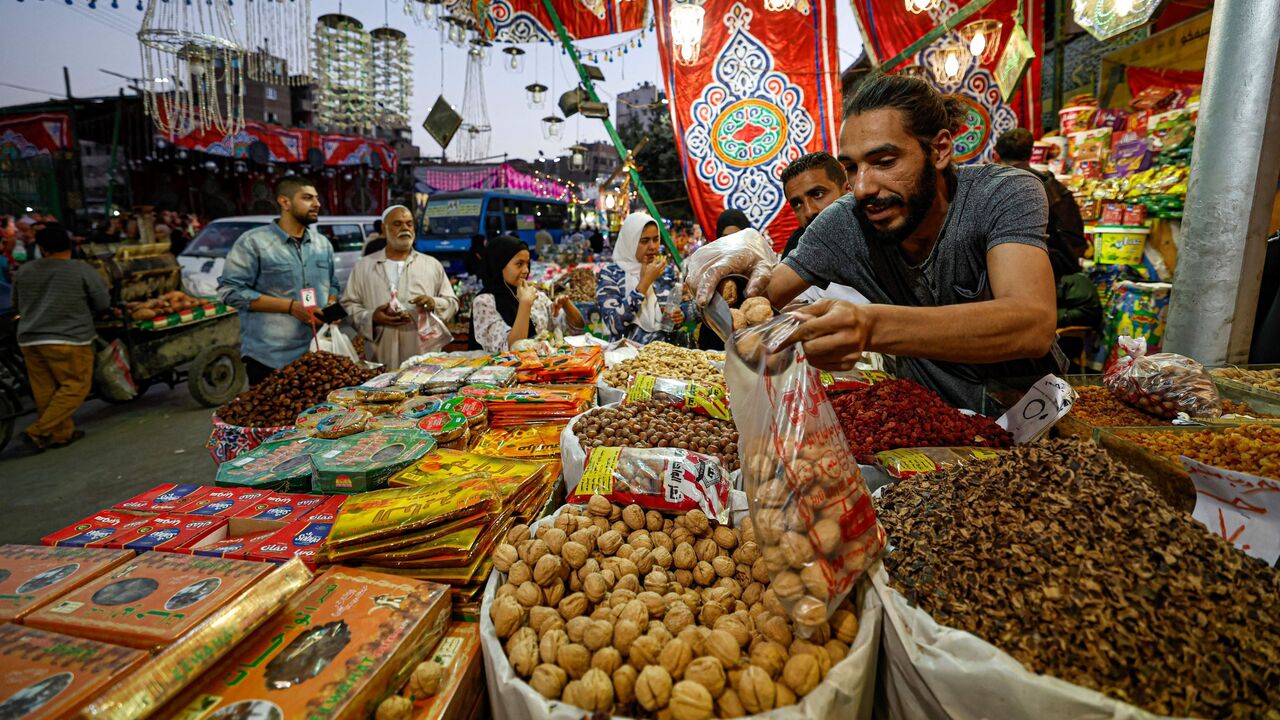As Ramadan approaches, Moroccans are stocking up on traditional sweets and essential ingredients while also ensuring their health is in check for the month of fasting.
In Rabat’s old medina, customers gather at market stalls to purchase Ramadan staples. Among the most popular treats is Chebbakia, a honey-soaked, sesame-covered pastry. Vendors offer samples to passersby, including Souad Sebaii, who eagerly tastes one.
“According to tradition, the Ramadan table should be full of different dishes such as Chebbakia, Harira (soup), Baghrir, Rghaif (Moroccan pancakes), and everything else needed for the holy month,” she says.
Cooking preparations are well underway. One worker stretches thin sheets of dough for Bastilla, a savory pastry, while another bundles fresh mint and aromatic herbs, key ingredients for Moroccan tea. Dates, nuts, spices, and herbs are also in high demand.
“When Ramadan approaches, we stock up on the essentials customers need, such as sesame, various seeds, and ingredients for Sellou (a Moroccan confection), in addition to dates and tea herbs,” says Jaouad El Attar, a spice and herb vendor in Rabat.
At a local bakery, staff work overtime to meet increased demand. Workers prepare seafood-filled Bastilla, Briouats, and Mahinchat, while boxes of Chebbakia pile up.
“We increase our production of Chebbakia, Sellou, Bastilla with chicken and seafood, honeyed sweets, and more by 50% to 60% during Ramadan,” says baker Rachida Meftah.
Beyond food, health considerations are a priority for many fasting Moroccans. In Salé, Naima Motog visits Dr. Faiçal Serrou to monitor her diabetes. He checks her blood pressure and blood sugar levels before advising whether she can fast safely.
“When a person with diabetes fasts, their blood sugar levels can fluctuate dangerously, potentially leading to concentration loss, digestive issues, dehydration, or even coma,” Serrou explains.
Following her examination, the doctor prescribes medication and offers health tips to prevent complications.
“Before I started seeing a doctor, I used to faint during Ramadan near iftar time. Now, I make sure to get checked to avoid any health issues,” Motog says.
Back at the market, vendors sell last-minute Ramadan essentials, including prayer rugs and Qurans. Mosques are also preparing for the influx of worshippers by cleaning and decorating prayer areas for Tarawih prayers.
As the first call to prayer signals the start of Ramadan, Moroccans across the country begin observing the holy month.

